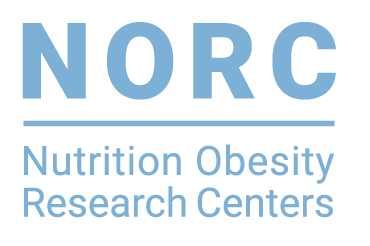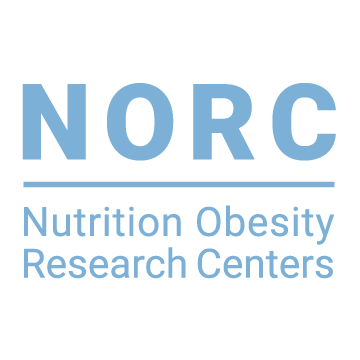Tag: Harvard Medical School
25th Annual Harvard Nutrition Obesity Symposium: “Novel Strategies for Medical Managment of Obesity: Mechanisms, Clinical Implications, and Societal Impacts”
25th Annual Harvard Nutrition Obesity Symposium: Novel Strategies for Medical Management of Obesity: Mechanisms, Clinical Implications, and Societal Impacts Wednesday, June 5th, 2024 8:30 AM – 3:35 PM This event will be held virtually and is free for all attendees. Click here for more information. Register now!
Categories: Featured News Tags: Harvard Medical School24th Annual Harvard Nutrition Obesity Symposium: Adiposity, Immunity, and Inflammation: Interrelationships in Health and Disease
24th Annual Harvard Nutrition Obesity Symposium: Adiposity, Immunity, and Inflammation: Interrelationships in Health and Disease Wednesday, June 7, 2023 This event will be held virtually. All are welcome! Click here for the full list of speakers. Register now! Registration for this event is free for all attendees.
Categories: Uncategorized Tags: Harvard Medical SchoolThe 22nd Annual Harvard Nutrition and Obesity Symposium: “Global Food Systems and Sustainable Nutrition in the 21st Century”
Date: Tuesday, June 15, 2021 Time: 8:00am to 5:30pm EST This event will be held virtually. All are welcome! The Nutrition Obesity Research Center at Harvard (NORCH) is pleased to announce our 22nd Annual Symposium, entitled “Global Food Systems and Sustainable Nutrition in the 21st Century.” We have an outstanding lineup of speakers who are experts in the fields of public health, global food systems, food inequity, and sustainable nutrition. Additional event info and speaker information. Fill out the interest form to be notified when registration opens. Registration for this event is free.
Categories: Featured News, News Tags: Harvard Medical SchoolEndogenous Oxytocin Levels in Relation to Food Intake, Menstrual Phase, and Age in Females
Summary: Though oxytocin is most commonly known for its role in uterine contraction during delivery, recent evidence demonstrates that it also has an anorexigenic effect. Elizabeth Lawson and colleagues investigated the endogenous oxytocin response to food intake and its relationship to sensations of hunger and satiety in 55 normal weight, pre-menopausal females. Oxytocin levels were higher in younger women and were lower in the early-mid follicular phase of the menstrual cycle. Oxytocin levels decreased significantly during the first hour following a standardized meal, with a mean 20% reduction in levels compared to baseline. Fasting levels of oxytocin were not associated … Read More »
Categories: Blogs, Featured News, News, Newsletters, Publications Tags: Harvard Medical SchoolLongitudinal 5-year evaluation of bone density and microarchitecture after Roux-en-Y gastric bypass surgery.
Summary: Previous work has suggested a deleterious short-term effect of Roux-en-Y Gastric Bypass (RYGB) on bone mineral density (BMD), but the long-term effects of RYGB on bone health are not well understood. To investigate this question, NORCH member Dr. Elaine Yu and colleagues prospectively followed serum bone markers and bone density in 21 adults who received RYGB. Bone density was assessed using serial dual-energy X-ray absorptiometry (DXA), quantitative computed tomography (QCT), and high resolution peripheral QCT (HR-pQCT) scanning. Bone turnover markers type I collage C-terminal telopeptide (CTX) and procollagen type I N-terminal propeptide (P1NP) were elevated 2 years after surgery … Read More »
Categories: Blogs, Featured News, Publications Tags: Harvard Medical SchoolTime-Dependent Molecular Responses Differ between Gastric Bypass and Dieting but Are Conserved Across Species.
Summary: Roux-en-Y Gastric Bypass surgery (RYGB) has metabolic effects that may be independent of the weight loss achieved following the procedure. To better characterize these effects, NORCH member Nicholas Stylopoulos, MD, and colleagues addressed the metabolic differences between weight loss achieved by RYGB vs. weight loss achieved by dieting, investigating tissue-specific molecular changes in each condition in a murine model and also comparing molecular signatures of each condition in murine and human models. Although equivalent weight loss was achieved in C57BL/6 mice undergoing RYGB compared to weight-matched sham (WMS) controls, there was a vastly different molecular signature in the adipose … Read More »
Categories: Blogs, Featured News, Publications Tags: Harvard Medical SchoolHelminth infection protects against high fat diet-induced obesity via induction of alternatively activated macrophages
Summary: With the support of a NORCH Pilot & Feasibility award, Dr. Su and colleagues in the Genomics and Cell Biology Core studied the effect of Helminth infection on immune and metabolic parameters. The findings show that helminth infection protects against weight gain on a high fat diet (HFD, see top figure, showing weight gain in HFD mice [red] vs. HFD + helminth infected) and also results in relative preservation of insulin sensitivity. Compared to helminth-infected mice on HFD, control mice on HFD show significantly higher amounts of gonadal and subcutaneous adipose tissue, as well as increased liver fat (see … Read More »
Categories: Featured News, Publications Tags: Harvard Medical SchoolDiet, Genetics, and the Gut Microbiome Drive Dynamic Changes in Plasma Metabolites
Summary: Intestinal microbes use various dietary components to produce energy and metabolites. Many of these metabolites are absorbed into the host bloodstream where they may have harmful or beneficial effects on host metabolism. To explore the effect of diet, genetics, and gut microbiome on plasma metabolites and insulin resistance, Fujisaka and colleagues exposed three different genetic strains of mice with varying propensities to obesity and diabetes to high fat diet (HFD) with or without concomitant antibiotic treatment (vancomycin or metronidazole). HFD and antibiotic treatment substantially modified intestinal microbiome composition, and these effects varied by genetic strain. Changes in the gut … Read More »
Categories: Featured News, News, Publications Tags: Harvard Medical SchoolGenetic Evidence That Carbohydrate-Stimulated Insulin Secretion Leads to Obesity
Summary: The carbohydrate-insulin model of obesity postulates that increased insulin secretion in response to a high glycemic load diet drives excess weight gain. Because of the close interrelationship between obesity, insulin resistance, and hyperinsulinism, however, investigating this hypothesis is often complicated by possibilities of confounding and reverse causation. Dr. Jose Florez and colleagues avoided these issues by using a bidirectional Mendelian randomization study to test the carbohydrate-insulin model of obesity. They assessed (1) whether a set of genetic variants associated with increased glucose-stimulated insulin secretion predict obesity and (2) whether a separate set of genetic variants associated with obesity predict … Read More »
Categories: Blogs, Featured News, Publications Tags: Harvard Medical School19th Annual Harvard Nutrition and Obesity Symposium
Save The Date! Registration opening soon in 2018! Stay Tuned.
Categories: Featured News, News Tags: Harvard Medical School
